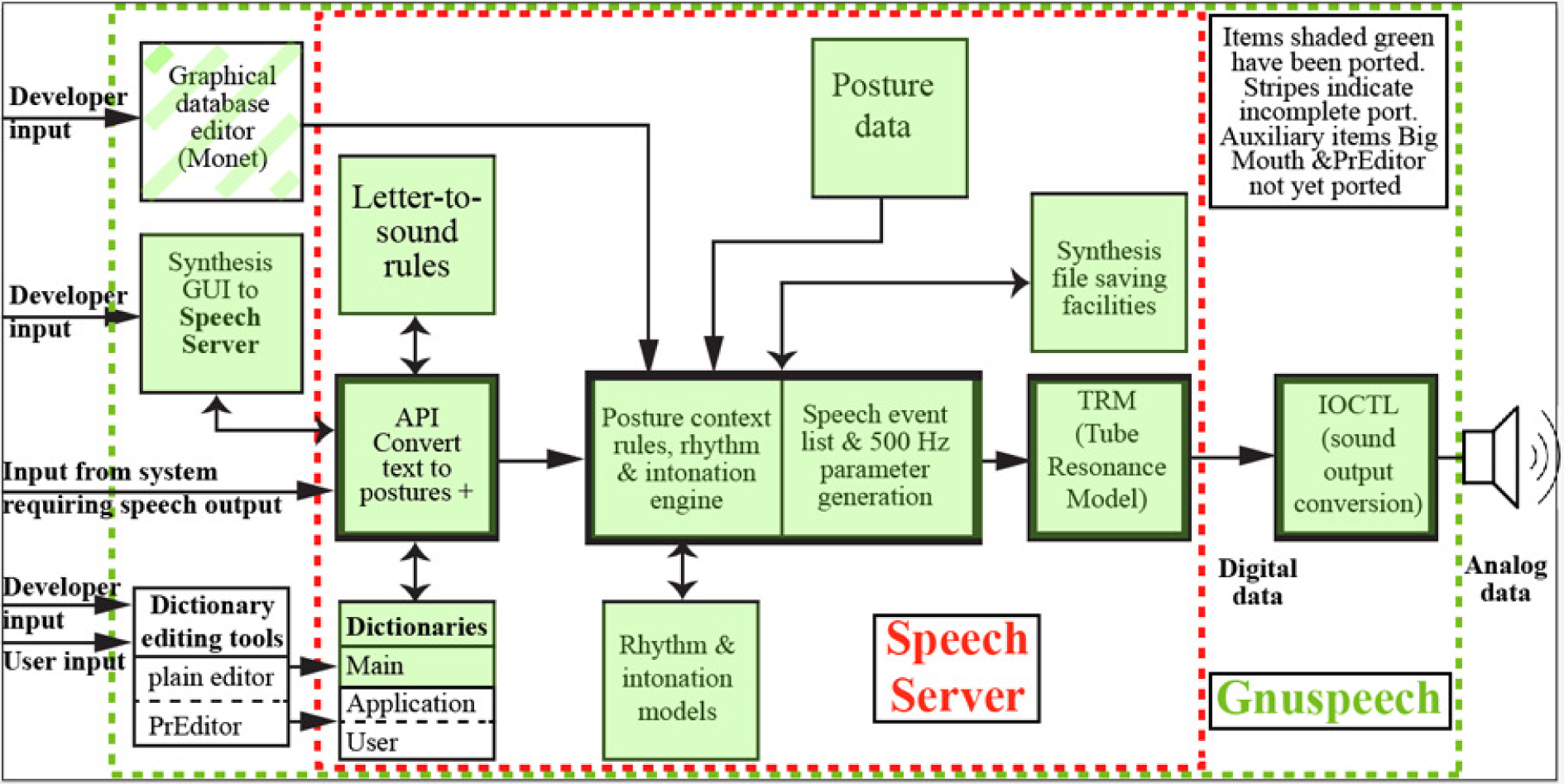
![[image of the Head of a GNU]](http://www.gnu.org/graphics/gnu-head-sm.jpg)
Gnuspeech is an extensible, text-to-speech package, based on real-time, articulatory, speech-synthesis-by-rules. That is, it converts text strings into phonetic descriptions, aided by a pronouncing dictionary, letter-to-sound rules, rhythm and intonation models; transforms the phonetic descriptions into parameters for a low-level articulatory synthesiser; and uses these to drive an articulatory model of the human vocal tract producing an output suitable for the normal sound output devices used by GNU/Linux. The research that provides the foundation of the system was carried out in research departments in France, Sweden, Poland, and Canada. Some of the features of gnuspeech and associated tools include:

It is a play on words. This is a new approach to speech synthesis from text. It is also a GNU project, aimed at providing high quality text-to-speech output for GNU/Linux. In addition, it provides a comprehensive tool for psychophysical and linguistic experiments.
Gnuspeech is currently under development. It is being ported from an original NeXTSTEP 3.x version to run under GNU/Linux. No full GNU/Linux release is currently available, but a release of the interactive Monet system for Mac OS/X and GNUstep is available, with some work remaining to be completed for GNUstep version (as of 2005-03-20—see next section for details).
Gnuspeech is actively being developed/ported. Interested persons are invited to contact the authors/developers through the gnu project facilities gnuspeech-contact@gnu.org. To join this mailing list, please visit the subscription page.
Current work in progress:
Gnuspeech is currently fully available as a NextStep 3.x version, and partly available as both a Mac OS/X version and as a GNUstep version. These files are available in the CVS repository.
Developers should contact the authors through the gnuspeech-contact@gnu.org mailing list. To join this mailing list, please visit the subscription page. Papers and manuals are available on-line (see below)
A number of papers and manuals relevant to gnuspeech exist:
There is the original NeXTSTEP Developer Package, which is available under a GPL, but does not run under GNU/Linux. There is also now a version of the full “Monet” system for Mac OS/X and GNUstep that provides the core of the text-to-speech development facilities and allows arbitrary text to be changed to speech. Note that further work is needed to strip this version to make a daemon-like module for incorporation within applications, or as a service, as noted above. Check out the Savannah CVS repository and search for “gnuspeech”. Current work is under the current directory.
See the section on Manuals and papers
To contact the maintainers of gnuspeech, to report a bug, or to contribute fixes or improvements, or to join the development team, send mail to gnuspeech-contact@gnu.org. To join this mailing list, please visit the subscription page.
Please send FSF & GNU inquiries & questions to gnu@gnu.org.
We thank David Hill for writing this page.
Please send comments on these web pages to webmasters@www.gnu.org, send other questions to gnu@gnu.org.
Copyright (C) 1998, 2001 Free Software Foundation, Inc., 59 Temple Place - Suite 330, Boston, MA 02111, USA
Verbatim copying and distribution of this entire article is permitted in any medium, provided this copyright notice is preserved.
Page last updated 05-03-21 @ 17:45 pm PST